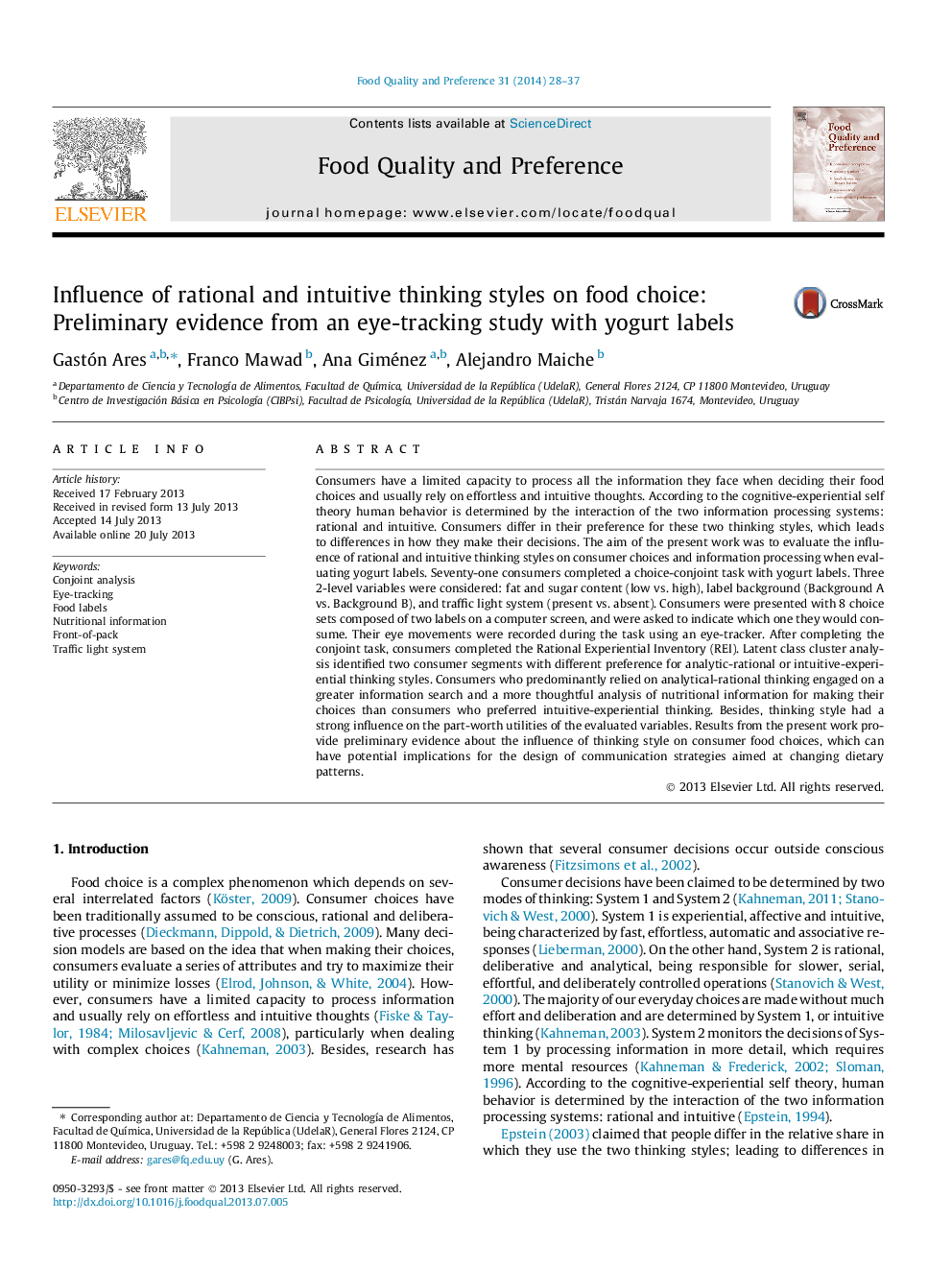| کد مقاله | کد نشریه | سال انتشار | مقاله انگلیسی | نسخه تمام متن |
|---|---|---|---|---|
| 4317299 | 1613165 | 2014 | 10 صفحه PDF | دانلود رایگان |
• The influence of rational and intuitive thinking styles on consumer choice was studied.
• Participants completed a choice-conjoint task and their eye movements were recorded.
• Consumers who predominantly relied on analytical-rational thinking engaged on a greater information search.
• Thinking style had a strong influence on the importance of the evaluated variables.
Consumers have a limited capacity to process all the information they face when deciding their food choices and usually rely on effortless and intuitive thoughts. According to the cognitive-experiential self theory human behavior is determined by the interaction of the two information processing systems: rational and intuitive. Consumers differ in their preference for these two thinking styles, which leads to differences in how they make their decisions. The aim of the present work was to evaluate the influence of rational and intuitive thinking styles on consumer choices and information processing when evaluating yogurt labels. Seventy-one consumers completed a choice-conjoint task with yogurt labels. Three 2-level variables were considered: fat and sugar content (low vs. high), label background (Background A vs. Background B), and traffic light system (present vs. absent). Consumers were presented with 8 choice sets composed of two labels on a computer screen, and were asked to indicate which one they would consume. Their eye movements were recorded during the task using an eye-tracker. After completing the conjoint task, consumers completed the Rational Experiential Inventory (REI). Latent class cluster analysis identified two consumer segments with different preference for analytic-rational or intuitive-experiential thinking styles. Consumers who predominantly relied on analytical-rational thinking engaged on a greater information search and a more thoughtful analysis of nutritional information for making their choices than consumers who preferred intuitive-experiential thinking. Besides, thinking style had a strong influence on the part-worth utilities of the evaluated variables. Results from the present work provide preliminary evidence about the influence of thinking style on consumer food choices, which can have potential implications for the design of communication strategies aimed at changing dietary patterns.
Journal: Food Quality and Preference - Volume 31, January 2014, Pages 28–37
